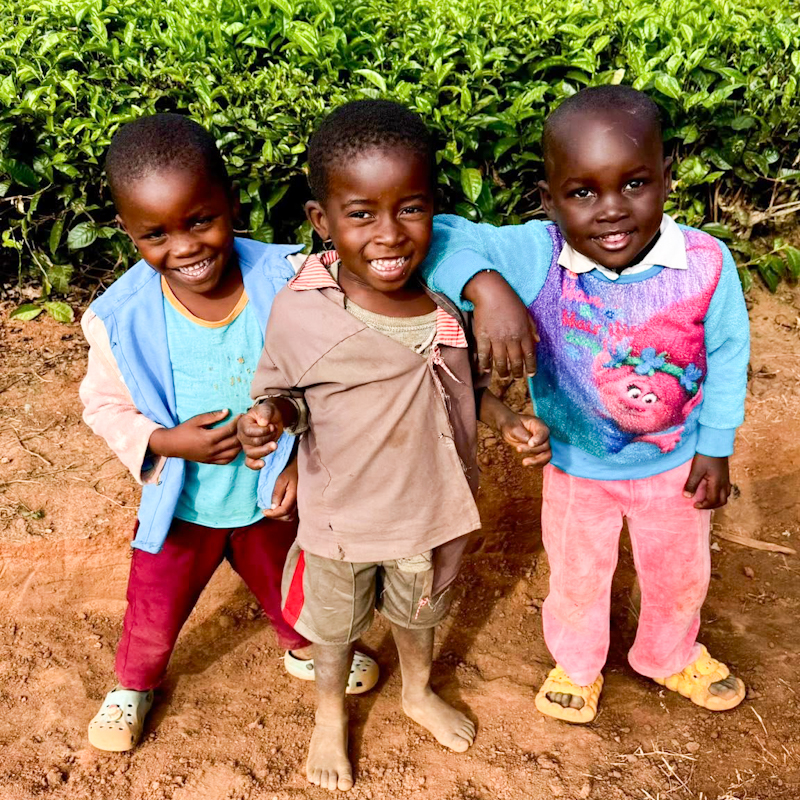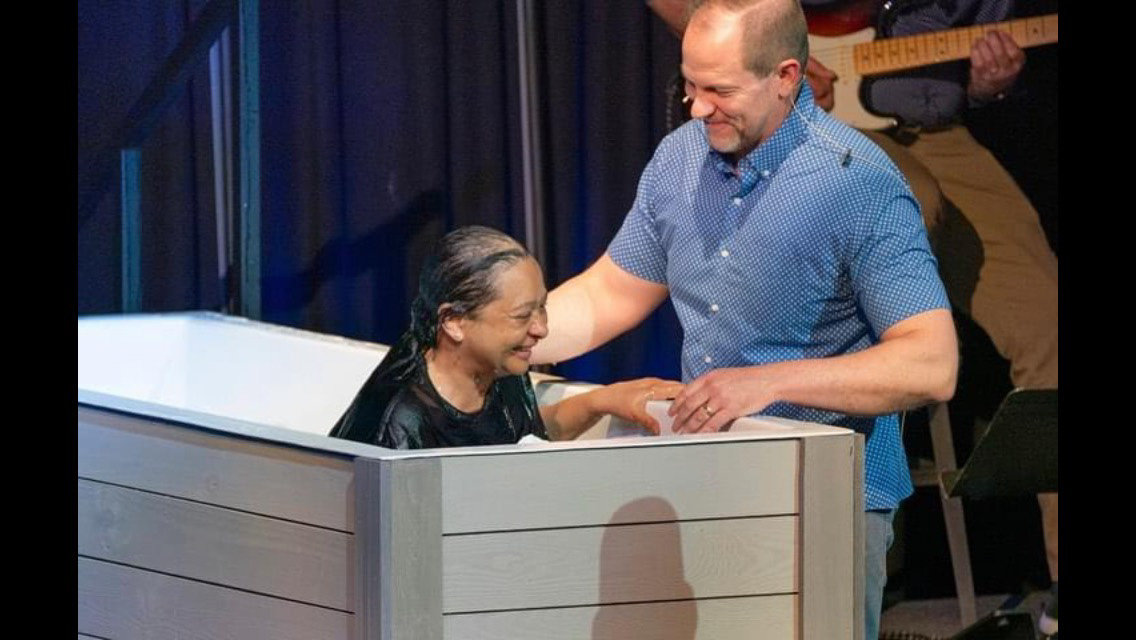"You walk with your cultural programming each day. It tells you what to think, how to feel, what to expect, and what to accept. If you and I could simply open our eyes and see, we would instead be able to walk humbly with God each day. Completely free."
This is a trip report. Warning: It may make you uncomfortable.
When you go on a trip that takes you outside your comfort zone, it’s an opportunity.
To do what?
To see differently.
Everything in life starts with vision—with what you see and how you see. If you are annoyed by someone in your life, that’s because of how you see them. See them differently, as a human being with hurts, issues, and questions, and how you feel about them will shift.
Everything you see is shaped by how you see.
Having just returned from Malawi, Africa—land of my birth, spending two weeks outside my comfort zone eating different food, immersed in a language I barely know, experiencing grinding poverty, a different time zone and different understanding of time itself—I was given an opportunity to see the world differently. That is, to have my heart expanded.
The reason for the trip was beautiful—to deepen our connection and partnership to the Church of the Nazarene there (which is booming with growth) and our commitment to help transform the country with both clean water and the hope of Jesus Christ.
The number of moving moments are too many to recount.
But. It was firmly outside my comfort zone.
Here are three ways the trip challenged me to see differently. 2 on my outer world, 1 on my inner world.
The rubric I’m working with is Micah 6:8’s command about what God requires of us.
Do justice.
Love mercy.
Walk humbly with God.

Become angry (at injustice)
Injustice is a word we throw around in our time. It denotes not just crimes, but where things are not as they should be. “Injustice,” Proverbs 13:23 tells us, “sweeps away what the poor have.”
If you must work and never rest, you are a slave. This is an injustice.
If your source of protein is catching rats in the field, this is an injustice.
If you must walk for dirty water everyday and watch your 2 year old die from diarrhea, this is an injustice.
You may think I am using the wrong word. That what’s really needed is compassion. I assure you Malawi is not without compassion—there are aid organizations everywhere. Compassion is a lifestyle imperative for a Christian. Compassion moves us to alleviate the suffering of people under the heavy hand of injustice. Compassion is why we are building water wells.
But as the saying goes, if you a constantly dragging people out of the river, at some point, go upstream and see who is throwing them in and stop them. Find out how to stop the injustice.
What Malawi lacks is justice.
In other words, things are not as they should be. It’s not as if they have never heard of pipes or electricity—it is present in the cities—it’s that they lack the resources to bring it everywhere, forcing people to live harsh and exhausting lives.
And as anyone who has been to countries where injustice prevails will tell you, it’s not that people don’t work hard. No, they generally work much harder than you and I.
Once you see injustice, name it. Let yourself be angry about. Outraged even. Let it move you to do justice.
Here was my tweet after our last trip: “Here’s a valid reason to give your life working for global economic justice: it’s dehumanizing for someone to have to work and never rest just to have an existence in the world.”
Make the lesser serve the greater
Often, in coming home, we see with new eyes what we take for granted. All of sudden things like ice, running water, a comfortable couch/bed take on new meaning. Our gratitude goes up. This is good. To live with daily gratitude is part of God’s will for you and I (see 1 Thessalonians 5:18).
This is the singular power of gratitude: it changes how you see.
I am so grateful for my home, my bed, my car, tap water. Deeply. The Psalmist reminds us the comforts of life are given “to make the heart glad” (Psalm 104:15). If you have those things, rejoice. They are good gifts from God.
But I can inadvertently zero my vision in on the lesser thing. I can spend my emotional energy fawning over my creature comforts instead of spending energy lessening the grip creature comforts have on how I operate in the world.
Here is the where the justice question intersects: If my heart is made glad by God’s good gifts, but my brother doesn’t have them, what am I called to do? James is clear. “If one of you says to them, “Go in peace; keep warm and well fed,” but does nothing about their physical needs, what good is it?”
It’s why we are building wells—to live out James 2:16.
The repeated record of the Bible is that when God does something redemptive and restorative, he always does it through people. You and I are the tool God uses.
Jesus has a life-changing principle: “To whom much is given, much is required.” (see Luke 12:48).
In other words, the more I have, the more I am to give.
The graph of God’s expectation of our resources is congruent. Meaning, as the graph of our income and resource goes up, God’s expectation about what we do with that income and resource goes up at the same rate.
I cannot oblige you to do that and you cannot oblige me to do that.
You and I must each hear the word of the Lord.
This has zero to do with guilt, and everything to do with purpose and vision. I am meant to serve my neighbor—including my global neighbor. The human family functions best when we love mercy.
Question your programming
FYI: This may be the most unsettling.
What you think is “just the way I am” is more often than not simply cultural programming.
You are captive.
Here’s how it sounds.
“I’m just wired to make every minute count.”
“I’m just wired to hate incompetence.”
“I’m just a person who doesn’t feel things, that’s just how I am.”
However you fill in the blank with "I'm just someone who _______."
All cultural programming, Anthony DeMello says, “is designed to keep you controllable and productive.”
When you go to another culture, it’s much easier to see cultural programming. It’s reflected in how people talk, what they think, and what they accept. You see this because you are an outsider who doesn’t talk, think, or act that way. It’s obvious to you. ‘How can everyone just accept that?’ you think.
It’s because people are—generally speaking—operating according to an agreed on script. This is cultural programming. “The world,” the Bible calls it.
Our issue is that we rarely are able to apply the same objectivity to our own programming. It’s like asking a fish about water. “What’s water?” the fish would say. We are blind to our own reality because it is what we call “normal.”
Consider that much of what you do, how you think, what you ignore, what you feel—is the product of years of cultural programming you have come to accept and rely on.
And what you and I need—desperately—is to see the programming and refuse to be conformed to it anymore, and instead be transformed by a renewal of our thinking and seeing.
What if:
Your frustrations.
Your fears.
Your prejudices.
Your expectations.
All are programmed in to you? That they exert sway over how you operate almost without you realizing it?
You walk with your cultural programming each day. It tells you what to think, how to feel, what to expect, and what to accept.
If you and I could simply open our eyes and see, we would instead be able to walk humbly with God each day. Completely free.
Consider this is what the Apostle Paul is saying in Romans 12:1-2.
- Pastor Scott Marshall, Wichita First Church of the Nazarene

